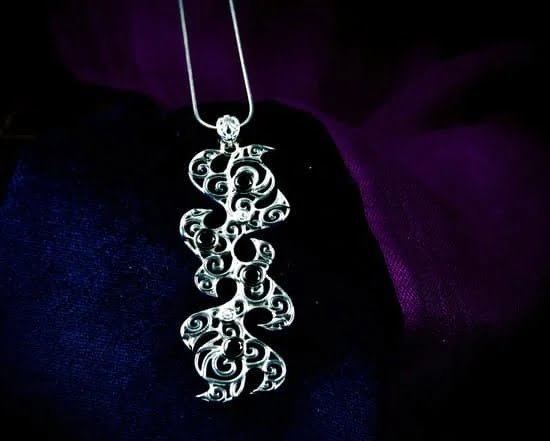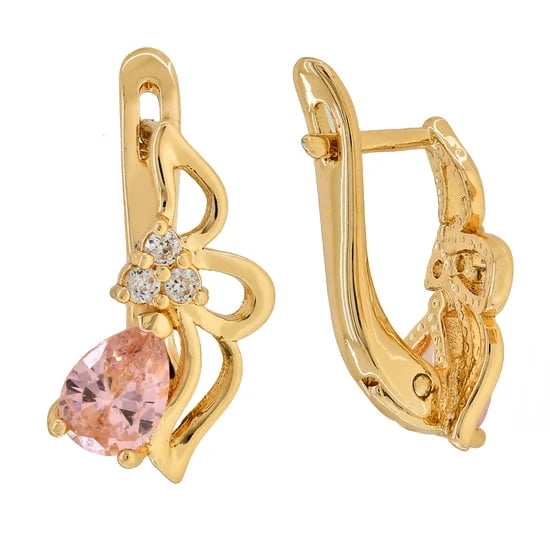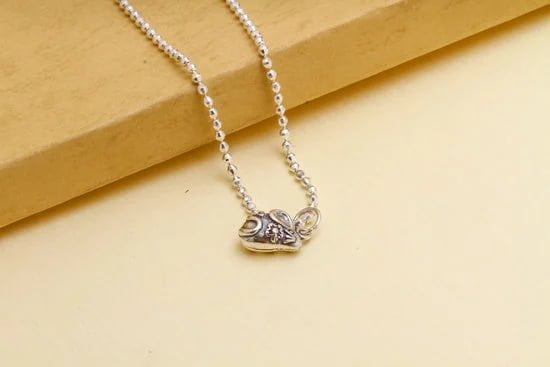Introduction
Jewelry is an important part of any collection, and it should be given special care when cleaning. Jewelry owners should clean their pieces regularly to ensure that they remain shining and bright for many years to come. Knowing the materials your jewelry is made of will help you determine the best way to clean it. Metals, such as gold, silver, and platinum, require different cleaners than gems and diamonds which need a more gentle solution. Gold-filled jewelry can often be cleaned with common household solutions while gemstones may require something specific. For pieces with intricate details or those that are already showing signs of wear, professional cleaning may be the best way to go. No matter what type of material you’re dealing with, knowing the basics about caring for your jewelry will help ensure it stays in great condition for a long time.
Different Jewelry Materials
1. Gold: Most gold jewelry can be cleaned with a mild detergent and warm water. After washing, gently buff the jewelry item with a soft cloth or chamois.
2. Silver: Silver jewelry can be scrubbed with a soft bristle brush and mild soap to remove tarnish and dirt. Always rinse the piece thoroughly in warm water before drying it off with a soft cloth to obtain maximum shine.
3. Gemstones: A mixture of mild soap,water and Ammonia can be used to clean gemstones, including diamonds and pearls, but never use this method on opals as they are very delicate stones that require special care when cleaning. It is best to use a commercial cleaner specifically designed for cleaning gemstone jewelry (available at most jewelry stores).
4. Platinum: Bleach should never be used when cleaning platinum items. The best thing to clean your platinum pieces is to soak them in lukewarm soapy water before brushing them gently with a non-metallic brush or dental pick to remove any dirt or grime that has built up on them over time. Then rinse the item in warm water before buffing it dry using a soft cloth or chamois leather buffing cloth.
5. Costume Jewelry: Costume jewelry typically contains mixed metals, so it’s best not to dive right into using harsh chemicals as some of these may damage the item’s surface finish over time if used too much. Start by wiping down the item with a damp cloth then finishing off by buffing the jewelery gently with a dry microfiber cloth (or even an old t-shirt).
Benefits of Cleaning Jewelry
Cleaning jewelry is important for maintaining its appearance and wearability. By removing any dirt, oils, or other debris that builds up over time, it becomes easier to view the details and brilliance of the piece. Additionally, cleaning can help prevent the pieces from corrosion or spotting due to various elements in the environment.
Caring for your jewelry will increase its lifespan and make sure it looks beautiful and brilliant long-term. Regular cleaning also helps remove contaminants that cause deterioration such as dust, sweat, skin oils, soap residue or cosmetics. Removing these types of debris with regular cleaning helps protect your jewelry from rusting, tarnishing or scratching.
When looking for a cleaning solution for your jewelry there are many options out there (including pre-made jewelry cleaners). The best thing to clean jewelry with however is a gentle hand washing with mild soap and warm water. This cleansing method will typically work just fine unless specified otherwise by a jeweler or metalsmith who sold you the piece.
The Best Way to Clean Jewelry
When cleaning jewelry, it is important to be aware of the material your piece is made from. Some materials can react negatively with harsh chemicals and even warm water, which can cause discoloration or damage over time. You must also be mindful not to scrape the stones and other decorations on a piece of jewelry when cleaning it. The best way to clean jewelry is to use simple materials that do not harm the item in some way.
Here are the steps for properly cleaning different types of jewelries:
1. Begin by wiping down your jewelry with a soft cloth or cotton swab, removing any dirt or dust buildups.
2. For softer materials, such as gold and silver, soak them in lukewarm water with a mild detergent like dish soap for a few minutes before gently rubbing off dirt and tarnish completely with a soft-bristle toothbrush or cloth. Be sure to rinse thoroughly in clean lukewarm water and dry with a clean cloth afterwards.
3. For more robust materials such as platinum and titanium, use a mixture of baking soda and lukewarm water instead; then rub down directly with a toothbrush or soft-bristled brush until all dirt has been removed before rinsing thoroughly in lukewarm water and drying off with a clean cloth.
4. Gemstones need special care during cleaning since they can get scratched or become porous if treated incorrectly. Wipe down each stone carefully using only clean soapy water then buff lightly with a feather duster for lustre before rinsing in fresh warm water for one final cleansing step. Dry each stone carefully after washing off soapy residue – finally buff again lightly for sparkle!
In addition you can also watch videos on how to safely clean different type of jewellery using home products such as dishwashing liquid, bicarbonate soda, white vinegar etc.. These videos explain step by step how to soak your jewels in the bathtub with some specific ingredients (measurements included) wearing protective gloves and going through every step until fully polished!
DIY Jewelry Cleaners
Making a DIY jewelry cleaner at home is an easy, safe and cost-effective way to keep fine jewelry sparkling. The best homemade jewelry cleaner solutions involve natural ingredients that you probably already have around the house.
The most common ingredients to use in a homemade jewelry cleaner are water, baking soda, salt, white vinegar and dishwashing liquid. Here are two recipes for making your own DIY jewelry cleaner at home:
1. Soap & Water Cleaner: Fill a small bowl with warm water. Add several drops of dish soap and stir until the water is sudsy. Place your jewelry into the soapy water and let it soak for a few minutes (about 10 minutes). Be sure not to leave the jewelry in too long because some pieces can be damaged if they sit in the solution too long. Swish the jewelry around in the soapy solution with your fingers if needed to help loosen dirt or grime on each piece. Rinse with cool clear water when finished and pat dry with a soft cloth or paper towel.
2. Baking Soda Cleaner: Create a paste by mixing baking soda with enough lukewarm water to create a thick consistency that won’t run off of your items easily. If needed use more baking soda until you get desired paste-like texture (no chunks in it). Take some using a soft brush (toothbrush can work too) and rub lightly over your item for about 30 seconds before rinsing off with warm water and drying thoroughly. You can also put several tablespoons of bicarbonate soda in warm water and allow your item to soak for 10-15 minutes depending on how dirty it is. Then follow up scrubbing withe bristled brush or toothbrush as mentioned above before rinsing off and drying completely
Warning Labels
When selecting a cleaner to use on your jewelry, it is important to check the safety labels. Many commercial jewelry cleaners are quite abrasive and can damage more delicate pieces, making them permanently dull or potentially chipping stones. Additionally, harsh chemicals found in some cleaners may interact adversely with certain metals and gems, discoloring or otherwise negatively affecting an item over time. Therefore, it is essential to read all warnings printed on the packaging before use.
When possible, homemade solutions and items such as soft cloths or brushes should be used to clean jewelry first. For example, using a mild dish soap added to warm water followed by a brush and a very soft cloth can do wonders for most pieces. This can help remove surface dirt and particles without giving you pause for worry about serious damage or lasting effects caused by harsher products.
Jewelry Care Tips
The best thing to clean your jewelry with is a soft cloth dampened with a mild soap and warm water. Gently rub the surface of the jewelry to remove any dirt or oils that have built-up over time. Once you are finished cleaning the jewelry, rinse it off in lukewarm water before letting it air dry. It is important to never submerge expensive or delicate jewelry in water completely since this could cause irreversible damage. Additionally, be sure to keep it out of extreme temperatures and areas prone to damage such as direct sunlight and furniture surfaces. To give your jewelry extra protection while storing, wrap each piece with a soft cloth before placing them into an airtight box or container.
Summary
The best way to clean jewelry depends on the type of material it is made from. Most precious metals, such as gold, silver, and platinum, can be cleaned with a solution of mild soap and warm water. For more delicate metals such as copper or brass, use a polish specifically designed for that type of metal. Soft jewels like pearls and opals should be wiped clean with a soft cloth to protect them from damage. Gemstone jewelry can usually be cleaned with warm water and mild soap or in an ultrasonic cleaning machine if needs more intense cleansing. When it comes to cleaning any jewelry, it is important to avoid harsh chemicals and abrasive materials as these can damage the piece over time. Use soft bristles for dirtier pieces and gentle strokes when wiping them clean for the best results.

Welcome to my jewelry blog! My name is Sarah and I am the owner of this blog.
I love making jewelry and sharing my creations with others.
So whether you’re someone who loves wearing jewelry yourself or simply enjoys learning about it, be sure to check out my blog for insightful posts on everything related to this exciting topic!





